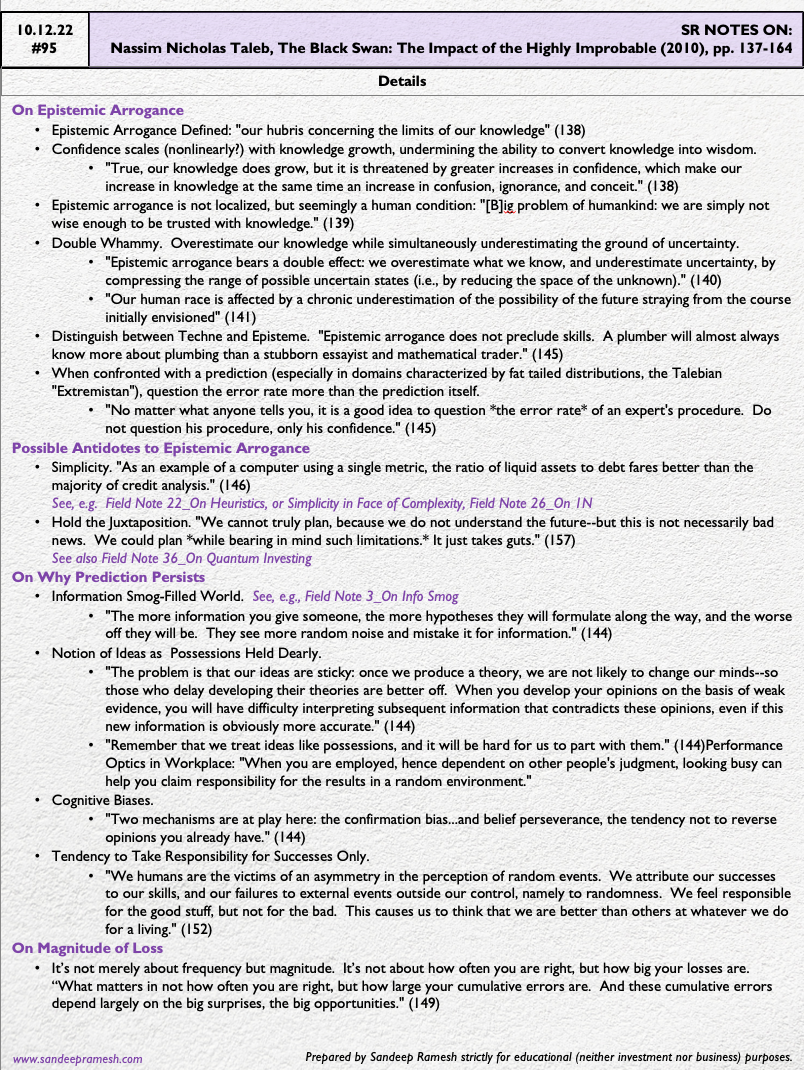Source: Nassim Nicholas Taleb, The Black Swan: The Impact of the Highly Improbable (2010), pp. 137-164 (chapter title: Scandal of Prediction)
NNT's 6-volume Incerto (4️⃣ scholarly works + 1️⃣ book of aphorisms + 1️⃣ technical companion) is worthy of deep study.
Today, I revisited Chapter Ten of The Black Swan ("The Scandal of Prediction").
The main question posed:
"Why on earth do we predict so much? Worse, even, and more interesting: Why don't we talk about our record in predicting? Why don't we see how we (almost) always miss the big events?" (p. 138)
The central answer given:
Epistemic arrogance or "hubris concerning the limits of our knowledge." (p. 138)
The practical response:
Self-investigation + guts.
"We cannot truly plan, because we do not understand the future--but this is not necessarily bad news. We could plan while bearing in mind such limitations. It just takes guts." (p. 157)
This reminds me of Szabo's formulation of "quantum thought," explored in Field Note 36: On Quantum Investing:
"I can be both for and against a proposition because I am entertaining at least two significantly possible but inconsistent hypotheses, or because I favor some parts of a set of ideas and not others. If you are unable or unwilling to think in such a quantum or scholastic manner, it is much less likely that your thoughts are worthy of others' consideration." (Szabo, 2012)
👀 See also, inter alia, some related Field Notes, grouped by subtopic:
On Uncertainty (the environment for most consequential decisions in our lives).
Field Note 16: On Knightian Risk, Uncertainty, Profit (+ Crypto)
Field Note 50: On Cynefin and Complexity
Field Note 84: On Effectuation
Information Overwhelm (as an environmental enabler of epistemic arrogance).
Field Note 3: On Info Smog
Field Note 48: On Foskett's Pyramid
Heuristics (as an corrective to epistemic arrogance).
Field Note 22: On Heuristics (or Simplicity in the Face of Complexity)
Field Note 26: On 1/N
The Details.
